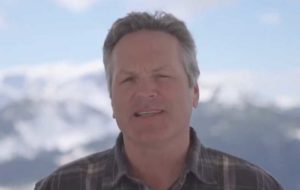As I enter my sixth year as Alaska’s governor, the Fiscal Year 2025 budget introduced this past week reflects a continuing policy to be guided by priorities rather than the price of oil.
Alaskans well understand how quickly prices can swing in either direction, and the past five years have offered no shortage of reminders to all of us. Under this administration, we’ve seen a price-war induced dip into negative territory at the onset of the pandemic in 2020 to north of $112 per barrel just two years later.
More recently, we’ve seen a decline from $91 at the end of October down to the mid-$70s today that’s much closer to the price of $73 per barrel that our current budget is based upon.
While state policies can be crafted to encourage production, and the nearly flat rate of decline over the past decade is evidence of a stable environment, we as Alaskans have no control over prices.
As governor, it’s my responsibility to ensure that our finite resources are invested in accordance with the constitutional requirement to maximize the benefits to Alaskans.
The top responsibility of any government is protecting public safety, and each budget introduced since 2019 has reflected this priority.
Despite facing a deficit of over a billion dollars upon taking office, we increased our investments in public safety to address the record-breaking crime rates we inherited.
Since then, we’ve increased our investments in Village Public Safety Officers by more than 81 percent and now have 88 funded positions compared to just 55 when I took office.
We’ve increased the investments in State Troopers as well, and now have nearly 100 more funded positions in Troopers and support personnel compared to 2018.
Combined with repealing the policies enacted in Senate Bill 91, these investments have seen results. Our overall crime rate has declined every year since to the lowest level in more than 40 years, and dramatically so in some categories.
Since 2018, car theft has dropped by nearly 55 percent; burglary by 47 percent; robbery by 38 percent; and rape by 11.6 percent.
While the trend is in the right direction, we still have rates above the national averages in most categories, and violent crime had a 1.6% increase last year in a reminder that progress is not permanent. Our fellow Alaskans working in law enforcement at every level deserve thanks for all they’ve done to drive these rates down, but they know as well as anyone that the job is far from over.
We must remain focused every day to secure gains and keep up the fight to protect every Alaskan no matter who they are or where they live.
Like public safety, education is another core function of government at every level, and we will continue to make targeted investments focused on outputs rather than merely inputs.
The recent news that Alaska’s charter school students are leading the nation by the equivalent of a full year of learning is proof that our children are capable of great achievements. We don’t, and we won’t, accept the status quo. Every student deserves the tools to succeed, and that starts with proficiency in reading at a young age.
We’re funding the implementation of the Alaska READS Act to make sure that every child is proficient in reading by third grade, and making investments in workforce development, the Alaska Native Science and Engineering Program, and computer science and coding initiatives.
Targeted investments directly to the classroom is my priority under House Bill 106, and I’m calling on the Legislature to send this to my desk to provide every teacher in Alaska with incentive payments from $5,000 to $15,000 for each of the next three years. We’ll work to increase our ranks of teachers in additional ways by supporting flexible options for certification and the development of an apprenticeship program as part of the national “Grow Your Own” program through the U.S. Department of Labor.
As we grow more homegrown teachers, we also have to grow more food to reduce our reliance on imports along with circulating more of our dollars in the Alaska economy compared to sending them out of state. We’ll be introducing policies and incentives to build up both our food security and energy security as part of an overarching goal to make Alaska the best and most affordable place to live, work, and raise a family.
Our approach to energy security is multi-faceted. We’ll introduce legislation to improve the economics of producing our known reserves of natural gas in Cook Inlet, and we’ll take advantage of our opportunity to upgrade and strengthen our transmission infrastructure to facilitate the unimpeded movement of the lowest-cost power through the Railbelt system.
The “green bank” legislation introduced last year will incentivize the development and deployment of established and emerging energy sources including renewables and advanced nuclear. At the same time, we’re continuing our work advancing the Alaska LNG Project to unlock our stranded North Slope gas to take advantage of markets in Asia, our ability to sequester CO2 both on the Slope and in Cook Inlet, and the inflation-proofed loan guarantees for the project.
We’re also making investments in childcare, access to health care, and initiatives to reduce the cost of housing including down payment assistance from the Alaska Housing Finance Corp. I was proud to sign legislation this past summer creating a state lumber grading program that can convert our abundant forest resources into lower cost housing materials.
By focusing on government’s core responsibilities – and trusting Alaskans with the freedom to decide how to spend their Permanent Fund Dividend – we’ve made historic investments, improved our bond ratings, and put money back into savings while holding overall spending in check.
This budget builds on the progress of the past five years, and I look forward to working with members of the Legislature to put it into action.
Mike Dunleavy is the 12th Governor of Alaska.

